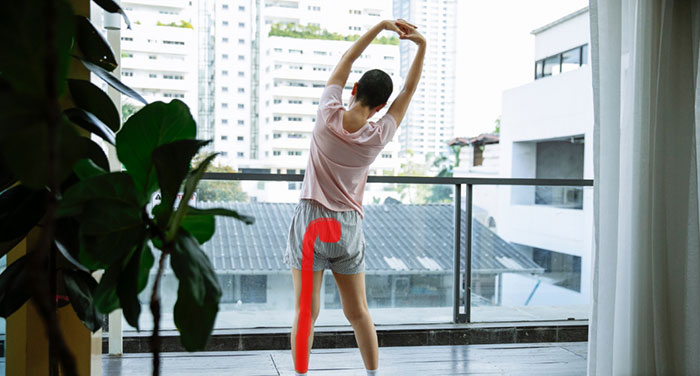Sciatica is one of the most common nerve problems we all experience at one point in life. This condition is characterized by a sharp pain that starts in the pelvis, passes through one of the button cheeks, and ends in one foot.
When you get this condition, take it as a sign that your sciatica nerve (the longest in the body) is compressed or irritated. Being a part of the spinal cord, this nerve gets inflamed only if the disc bulges (herniates).
For some people, sciatica nerve pain comes from bad life choices and practices. However, for others (like pregnant women or obese individuals), their existing conditions subject them to this pain. No matter how you got it, there are things that you do that can worsen your pain. Let’s talk about them briefly.
Causes of Sciatica Flare-ups
Here are ways in which you may be worsening your sciatic pain:
1. Sedentary Lifestyle
Does it usually feel pointless for you to get up and move about? Well, guess what, doing so could exacerbate your sciatica. Resting excessively is not healthy. Quite frankly, we all should never be reminded of that.
So how exactly does moving about less affect sciatica? It’s simple. When sitting in one place for long, your weight barely shifts to other areas of the spine. This results in intervertebral disc compression, irritation, or possible damage. But when you get up and about, your weight tends to spread throughout the body equally. So whatever you do, find a reason to get you up and going.
2. Sitting on Your Wallet/other Hard Objects
The pocket must have something-either your wallet, cellphone, or keys. When you sit on them for long, the piriformis muscle (part of the nerve system) gets inflamed. When that happens, your sciatica will flare-up.
Get in the habit of emptying your pockets before you sit down. Just make sure to keep them close.
3. Wearing Heels and Poorly Cushioned Shoes

Heels make ladies look spectacular let’s not argue about that. Unfortunately, those good looks come at the expense of your comfort and long-term foot health. Like heels, poorly padded shoes don’t absorb impact and this leads to too much pain which the nerves will send all the way up to your lower body.
There are many comfortable long-distance walking shoes for both men and women. Take advantage of their good features to stay safe and healthy. You should know too that there are shoes for sciatica that help to keep the sciatica nerve from being agitated.
4. Tight Garments
You don’t often refer to medical journals when buying clothes, do you? Don’t worry, you are not alone. We get fashion ideas from friends, family members, and the internet in general. General studies have it that tight pants aggravate sciatica.
What they do is they put so much pressure on your butt, back, and spine resulting in the compression of the sciatica nerve. By the way, why do you think people put on oversized sleeping garments at night? It’s simple. To allow the body enough breathing space. So if you have any minor symptoms of sciatica, try to review your wardrobe choices again.
5. Being Overweight
To be honest, too much weight is not healthy. There are many risks including pressure, heart attack, diabetes, osteoarthritis, and the list is pretty long. On top of that, packing so much weight basically overwhelms the pelvis to which the sciatica nerve is connected.
We understand it’s a tough battle to deal with weight and no one wants too much doom and gloom cast their way. However, it’s still okay (and loving, we’d presume) to remind you to come up with an exercise routine. It doesn’t have to be aggressive.
6. Too Much Stress
Apparently, subjecting yourself to a lot of stress has a negative impact on sciatica pain. This is a theory put forth by Dr. John Sarno, a professor in the department of medicine, New York University Medical Center.
According to Sarno, people who stress themselves a lot-especially type A (called people pleasers) deprive the nerve system (including sciatica) of sufficient oxygen. This leads to muscle weakness and more pain. However, this theory is not supported by many doctors.
7. Poor Posture
When the body is improperly aligned, your muscles and bones are out of place. If you stay this way for long, the nerves get agitated resulting in more pain. Signs of sciatica will shoot if you don’t assume proper posture at all times.
Similarly, bending a lot when lifting heavy items can overtax your spine resulting in a herniated disc. So whether you are offloading stuff from your car or carrying items to your store, get help if they are too heavy. Otherwise, you might worsen your sciatica pain.
Besides the said factors, there are other sciatic risk factors you should know. Some of them include aging, childbirth/pregnancy, inherited spine abnormalities, smoking, lower back injuries, and disorders of the spine.
Treating Sciatica
If you have this condition, perhaps your biggest worry is to know if it can be cured. The truth is, you can manage it effectively. But before you start administering DIY tips and tricks, you need to let a physician examine you for possible spine problems.
Generally, physical exercise and therapies can help flex your muscles and properly place the spine discs. There are plenty of sciatica pain workout videos on YouTube. Go check them out. Ice and heat therapy should be a go-to practice for those with muscular or nerve inflammation.
We must have mentioned somewhere that the sciatica nerve is a part of the spine system. So if your back is the cause, then address it. There are plenty of back support and posture correctors to help you align your body properly.
If shoes are the problem, then the simplest solution is to review your rack. Make sure your everyday shoes meet the best comfort and support standards.
Here’s our parting shot; always make good decisions when it comes to shoes. Your feet get you up and about. Therefore, it’s imperative to keep them healthy for as long as possible. Take a trip around our blog to discover some of the best shoes in existence. See you around.
Related Resources:

